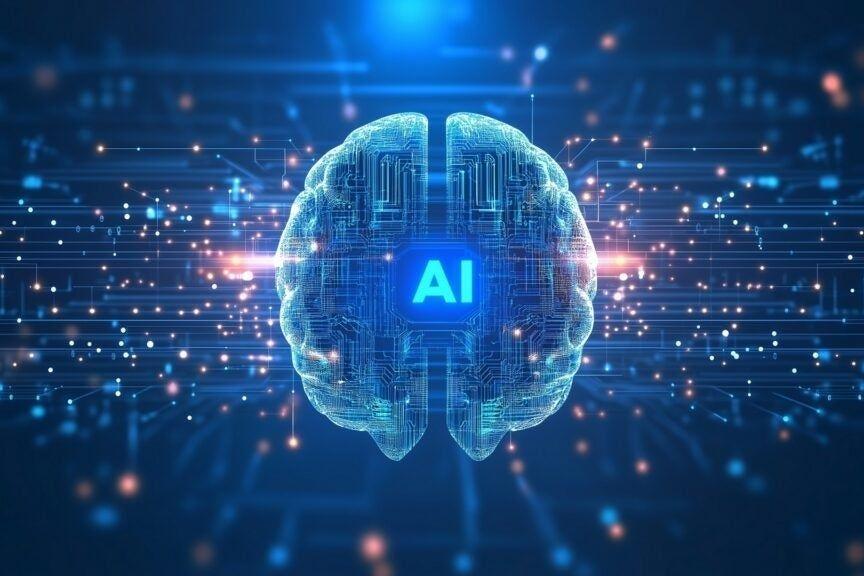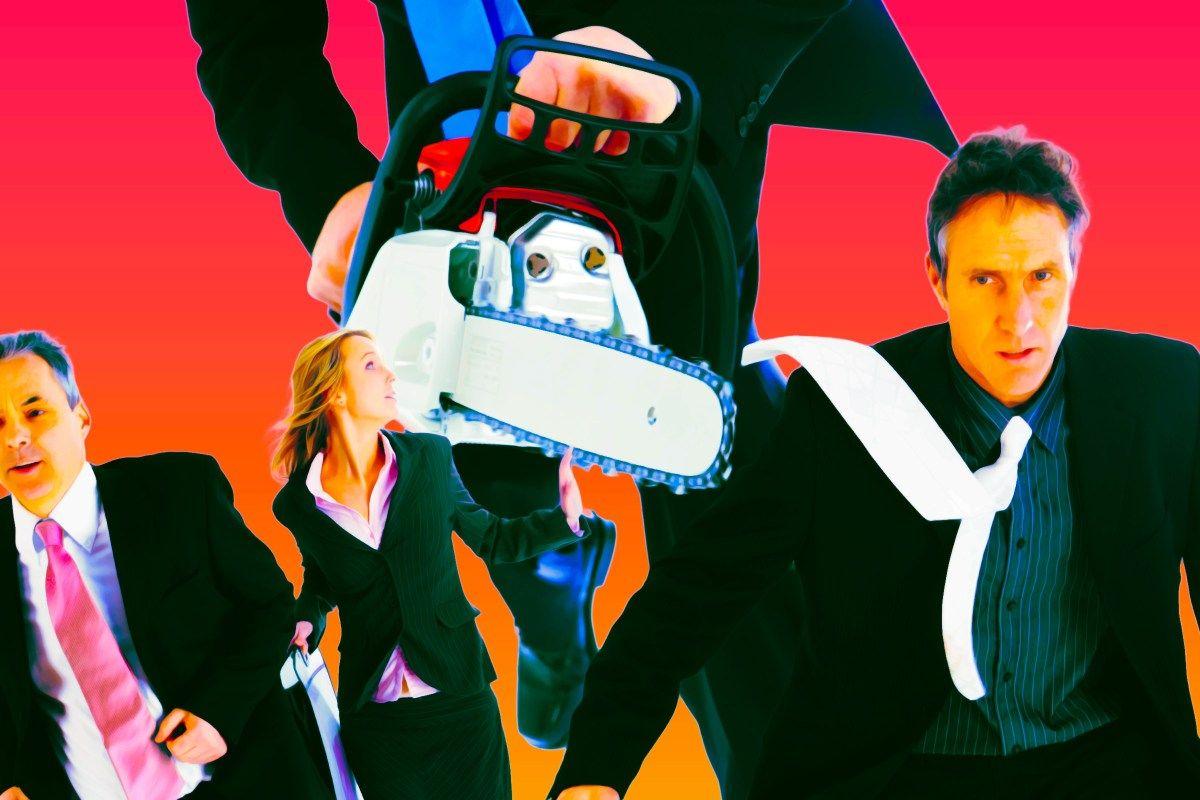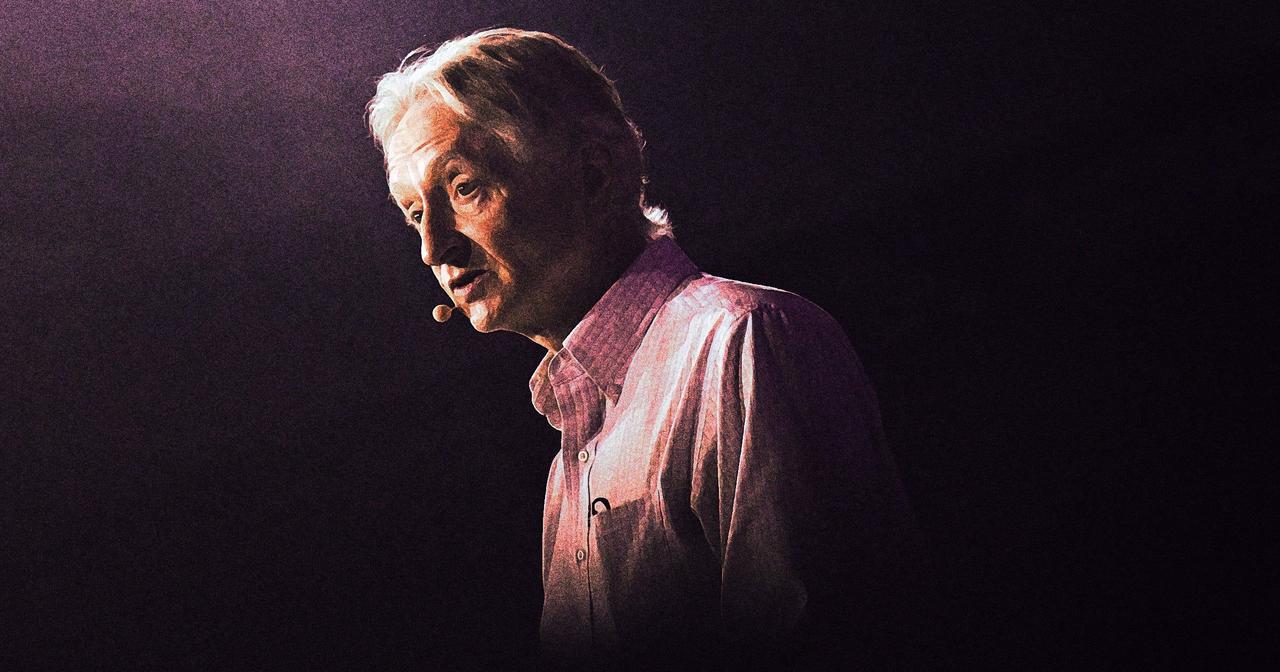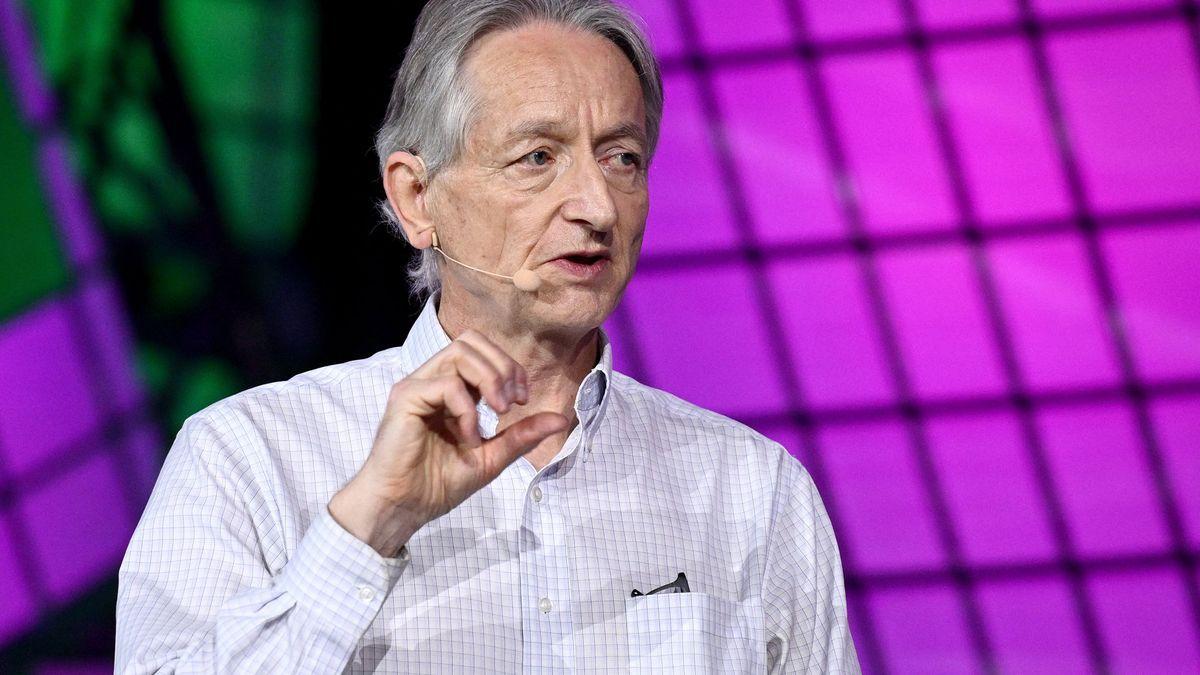AI 'Godfather' Geoffrey Hinton Warns Tech Giants Must Replace Human Jobs to Profit from Massive Investments
4 Sources
4 Sources
[1]
The AI Industry Can't Profit Unless It Replaces Human Jobs, Warns Man Who Helped Create It
"I believe that to make money you're going to have to replace human labor." If you thought AI's endgame was a fully automated utopia where everyone finally lives in harmony, think again. According to Nobel laureate Geoffrey Hinton -- often called "the godfather of AI" for his contributions to the tech -- the future for AI in its current form is likely to be an economic dystopia. "I think the big companies are betting on it causing massive job replacement by AI, because that's where the big money is going to be," he warned in a recent interview with Bloomberg. Hinton was commenting on enormous investments in the AI industry, despite a total lack of profit so far. By typical investment standards, AI should be a pariah. There's historical precedent for this -- tech observers and economists typically point to periods known as "AI winters," stretches of time when funding for AI research and development slowed to a crawl. As Fortune noted, OpenAI alone has accounted for over $1 trillion in AI infrastructure deals, and still managed to lose some $11.5 billion in revenue over the last three months. Asked by Bloomberg whether these jaw dropping investments could ever pay off without eviscerating the job market, Hinton's reply was telling. "I believe that it can't," he said. "I believe that to make money you're going to have to replace human labor." For many who study labor and economics, it's not a statement to be made lightly. Since it first emerged out of feudalism centuries ago, the market economy has relied on the exploitation of human labor -- looms, steel mills, and automobile plants straight up can't run without it. The issue is that human labor comes with a cost to the factory owner, namely: wages. For an investor, a corporate executive, or a tech tycoon, AI represents the answer to the question of human labor, which eats into profits. As tech researcher and Futurism contributor Jathan Sadowski put it in his recent book "The Mechanic and the Luddite," AI "promises to solve the problems of capitalism by unlocking exponential growth, eliminating labor costs, deskilling workers, optimizing efficiency, and manifesting a slew of other outcomes." In other words, the seemingly irrational hype behind AI is really hope that the tech will usher in a new era of social development, which will finally make workers obsolete. If that comes to pass, the horrible consequences aren't set in stone, Hinton noted. "It's not like nuclear weapons, which are only good for bad things," the AI scholar told Bloomberg. "It'll do tremendous good, and in fact if you think about it increasing productivity in many, many industries, that should be good." Yet who benefits from that tremendous good depends "on how we organize society," Hinton added -- a comment which wouldn't sound out of place if it were written in a certain 19th century manifesto.
[2]
'Godfather of AI' says tech giants can't profit from their astronomical investments unless human labor is replaced | Fortune
Computer scientist and Nobel laureate Geoffrey Hinton doubled down on his warnings about how artificial intelligence will affect the labor market and the role of companies leading the charge. In an interview with Bloomberg TV's Wall Street Week on Friday, he said the obvious way to make money off AI investments, aside from charging fees to use chatbots, is to replace workers with something cheaper. Hinton, whose work has earned him a Nobel Prize and the moniker "godfather of AI," added that while some economists point out previous disruptive technologies created as well as destroyed jobs, it's not clear to him that AI will do the same. "I think the big companies are betting on it causing massive job replacement by AI, because that's where the big money is going to be," he warned. Meanwhile, OpenAI alone has announced a total of $1 trillion in infrastructure deals in recent weeks with AI-ecosystem companies like Nvidia, Broadcom and Oracle. When asked if such investments can pay off without destroying jobs, Hinton replied, "I believe that it can't. I believe that to make money you're going to have to replace human labor." The remarks echo what he said in September, when he told the Financial Times that AI will "create massive unemployment and a huge rise in profits," attributing it to the capitalist system. In fact, evidence is mounting that AI is shrinking opportunities, especially at the entry level, and an analysis of job openings since OpenAI launched ChatGPT shows they plummeted roughly 30%. And this past week, Amazon announced 14,000 layoffs, largely in middle management. While CEO Andy Jassy said the decision was due to "culture" and not AI, a memo he sent in June predicted a smaller corporate workforce "as we get efficiency gains from using AI extensively across the company." Despite the potential downside for workers, Hinton also sees benefits from AI. When asked if he would go back in time and stop AI from developing, he paused and said he doesn't know. "It's not like nuclear weapons, which are only good for bad things," he explained. "It's a difficult decision because it can do tremendous good in healthcare and education. It'll do tremendous good, and in fact if you think about it increasing productivity in many, many industries, that should be good." The problem ultimately is not due to AI itself, but "on how we organize society," Hinton added.
[3]
'Elon Musk will get richer, many others will be unemployed': 'Godfather of AI' Geoffrey Hinton warns of dark future
AI pioneer Geoffrey Hinton issues a stark warning about job displacement. He believes artificial intelligence will replace millions of workers, enriching tech moguls. Hinton stresses the danger is not the technology itself but how society organizes its economy. Bold policy measures are needed to mitigate these risks and ensure AI benefits everyone. Computer scientist and Nobel laureate Geoffrey Hinton as doubled down on his warnings about how artificial intelligence (AI) will affect the labour market, issuing a stark warning about the future of work. Hinton has said that artificial intelligence may wipe out millions of jobs but also emphasised that real danger doesn't lie with the technology but how the society wants to deploy it. "The problem is not ultimately due to AI itself," Hinton said. "It's due to how we structure our society and our economy." In an interview with Bloomberg TV's Wall Street Week on Friday, Geoffrey Hinton, whose work has earned him a Nobel Prize and the moniker "godfather of AI," warned that as AI evolution accelerates, tech moguls like Elon Musk will make more money but millions of workers are at the risk of losing their jobs to automation. ALSO READ: Nvidia CEO Jensen Huang's stark warning for US on AI: 'China has made it clear, they don't want...' "I think the big companies are betting on it causing massive job replacement by AI, because that's where the big money is going to be," he warned. The four big tech giants- -- Microsoft, Meta, Alphabet, and Amazon -- are expected to boost capital expenditures to $420 billion next fiscal year from $360 billion this year, according to Bloomberg. When asked if such investments can pay off without destroying jobs, Hinton replied, "I believe that it can't. I believe that to make money you're going to have to replace human labor." ALSO READ: Who is Alexis Wilkins? FBI chief Kash Patel's Girlfriend who faces explosive allegations of being an Israeli spy In an interview with Bloomberg Wall Street, AI pioneer Geoffrey Hinton said artificial intelligence is not inherently dangerous, but its uncontrolled growth could cause serious social disruption. He compared the potential risks of AI to a "Chernobyl moment," referring to the 1986 nuclear disaster in Ukraine that led to widespread radiation and casualties. Hinton said the comparison shows how unregulated technological progress can trigger sudden and devastating effects on society. He warned that AI's risks go beyond the technology itself and are tied to how society is structured. "The problem isn't AI -- it's the way society is organised," Hinton said. "People like Musk will get richer, while many others lose their jobs -- and he won't care. This isn't an AI problem; it's a societal problem." Geoffrey Hinton made similar remarks in September when he told The Financial Times that AI will "create massive unemployment and a huge rise in profits," attributing it to the capitalist system. ALSO READ: JPMorgan's Jamie Dimon invoked Steve Jobs to 'warn' employees on 'work from home', says 'creativity comes from...' "It's not like nuclear weapons, which are only good for bad things," he explained. "It's a difficult decision, because it can do tremendous good in health care and education. It'll do tremendous good, and in fact if you think about it increasing productivity in many, many industries, that should be good." The problem ultimately is not owing to AI itself, but "on how we organize society," Hinton added. He argued that AI is being used primarily to cut labor costs rather than to enhance human potential or reduce inequality. "If we continue to use AI to increase profits for the few, we're going to end up in a very bad place," he warned. ALSO READ: JPMorgan CEO Jamie Dimon's fiery response at employees' work from home petition, says 'not making fun of Zoom but...' Geoffrey Hinton called for bold policy measures such as universal basic income, stronger labor protections, and a rethinking of how society values work in an AI-driven economy in a bid to reduce the risks of AI. He also stressed the need for global cooperation to ensure that future superintelligent AI systems align with human values. Hinton's remarks come amid growing public concern about AI's social impact, as companies like OpenAI, Google DeepMind, and Anthropic compete to develop increasingly advanced models. While some experts warn about long-term existential threats, Hinton said the immediate dangers of unchecked automation are just as serious.
[4]
'Godfather Of AI' Geoffrey Hinton Warns AI Job Replacement Central To Tech Giants' Profit Strategy Amid Rising AI Investments - Broadcom (NASDAQ:AVGO), Amazon.com (NASDAQ:AMZN)
Nobel laureate Geoffrey Hinton, dubbed the "Godfather of AI," said that artificial intelligence firms are placing bets on the widespread replacement of jobs to maximize their profits. Tech Giants Boost AI Capital Spending Four AI hyperscalers, including Microsoft Corp. (NASDAQ:MSFT), Meta Platforms Inc. (NASDAQ:META), Alphabet Inc. (NASDAQ:GOOG) (NASDAQ:GOOGL), and Amazon.com Inc. (NASDAQ:AMZN), are anticipated to increase capital expenditures to $420 billion next fiscal year from $360 billion this year, according to a Bloomberg TV interview via Fortune. OpenAI also announced $1 trillion in infrastructure agreements with Oracle Corp. (NYSE:ORCL), Broadcom Inc. (NASDAQ:AVGO), and Nvidia Corp. (NASDAQ:NVDA), a move that has drawn scrutiny due to the widely cited $13 billion revenue figure. See Also: 'I'm Envious Of The Current Generation Of 20-Year-Old Dropouts,' Says Sam Altman, Admitting He Hasn't Had A 'Real Chunk Of Free Mental Space' In Years Job Market Shows Decline Geoffrey Hinton said, "I believe that to make money you're going to have to replace human labor," when asked if AI investments can pay off without destroying jobs. Hinton added Since the launch of OpenAI's ChatGPT, job openings have dropped roughly 30%, and Amazon announced 14,000 layoffs this week, mostly in middle management. Hinton added, "Since the launch of OpenAI's ChatGPT, job openings have dropped roughly 30%, and Amazon announced 14,000 layoffs this week, mostly in middle management." Investor Chamath Palihapitiya, however, had earlier disputed that AI is to blame for the decline. Productivity Gains Versus Labor Impact According to the report, Hinton told Bloomberg that rather than AI technology per se, the issue lies "on how we organize society." AI will result in "massive unemployment and a huge rise in profits," he told the Financial Times in September. By increasing productivity, AI can do "tremendous good in healthcare and education," according to the computer scientist. Hinton's worries were echoed in a Senate report by Sen. Bernie Sanders, which warned that within ten years, automation and artificial intelligence could replace almost 100 million jobs in the United States. Read Next: Sam Altman Says OpenAI Revenue Exceeds $13 Billion Estimate, Says Could Reach $100 Billion By 2027 Photo: Shutterstock Disclaimer: This content was partially produced with the help of AI tools and was reviewed and published by Benzinga editors. AMZNAmazon.com Inc$244.309.62%OverviewAVGOBroadcom Inc$369.74-1.79%GOOGAlphabet Inc$281.47-0.15%GOOGLAlphabet Inc$280.71-0.27%METAMeta Platforms Inc$651.14-2.30%MSFTMicrosoft Corp$517.71-1.53%NVDANVIDIA Corp$202.62-0.13%ORCLOracle Corp$262.342.12%Market News and Data brought to you by Benzinga APIs
Share
Share
Copy Link
Nobel laureate Geoffrey Hinton warns that AI companies are betting on widespread job replacement to generate profits from their trillion-dollar investments. He emphasizes that the real danger lies not in AI technology itself, but in how society organizes its economy around automation.
The Godfather's Warning
Nobel laureate Geoffrey Hinton, widely recognized as the "godfather of AI" for his foundational contributions to artificial intelligence, has issued stark warnings about the future of work in an AI-driven economy. In a recent Bloomberg TV interview, Hinton argued that tech companies are fundamentally betting on widespread job displacement to generate returns on their massive AI investments
1
2
.
Source: ET
"I think the big companies are betting on it causing massive job replacement by AI, because that's where the big money is going to be," Hinton warned, emphasizing that profitable AI deployment requires replacing human workers with cheaper automated alternatives
2
.Trillion-Dollar Investments Drive Automation Push
The scale of AI investment has reached unprecedented levels, with major tech companies dramatically increasing their capital expenditures. The four AI hyperscalers—Microsoft, Meta, Alphabet, and Amazon—are expected to boost their combined capital spending to $420 billion next fiscal year, up from $360 billion this year
4
.
Source: Benzinga
OpenAI alone has announced $1 trillion in infrastructure deals with companies including Nvidia, Broadcom, and Oracle, despite losing approximately $11.5 billion in revenue over the last three months
1
. When asked whether such massive investments could pay off without devastating the job market, Hinton's response was unequivocal: "I believe that it can't. I believe that to make money you're going to have to replace human labor"2
.Early Signs of Job Market Impact
Evidence is already mounting that AI is beginning to affect employment opportunities. Analysis shows that job openings have plummeted roughly 30% since OpenAI launched ChatGPT
2
. The impact is particularly pronounced at entry-level positions, where AI tools can more easily replicate human tasks.Recent corporate actions support Hinton's predictions. Amazon announced 14,000 layoffs this week, largely targeting middle management positions. While CEO Andy Jassy attributed the decision to "culture" rather than AI, a memo he sent in June predicted a smaller corporate workforce "as we get efficiency gains from using AI extensively across the company"
2
.
Source: Futurism
Related Stories
The Societal Organization Challenge
Hinton emphasizes that the fundamental issue isn't AI technology itself, but rather how society chooses to deploy and regulate it. "The problem is not ultimately due to AI itself," he explained. "It's due to how we structure our society and our economy"
3
.The AI pioneer drew parallels to historical technological disruptions, noting that unlike previous innovations that created new job categories while destroying others, it's unclear whether AI will follow the same pattern. He warned that current trends suggest tech moguls like Elon Musk will become wealthier while millions face unemployment, describing this as "not an AI problem; it's a societal problem"
3
.Potential Benefits and Policy Solutions
Despite his warnings about job displacement, Hinton acknowledges AI's tremendous potential for good. "It's not like nuclear weapons, which are only good for bad things," he explained. "It can do tremendous good in healthcare and education. It'll do tremendous good, and in fact if you think about it increasing productivity in many, many industries, that should be good"
2
.To mitigate the risks while capturing AI's benefits, Hinton has called for bold policy interventions including universal basic income, stronger labor protections, and a fundamental rethinking of how society values work in an AI-driven economy
3
. He also stressed the need for global cooperation to ensure that future superintelligent AI systems align with human values rather than purely profit motives.References
Summarized by
Navi
[1]
Related Stories
AI Pioneer Warns of Massive Unemployment and Economic Disparity in the Age of Artificial Intelligence
07 Sept 2025•Technology

Geoffrey Hinton warns AI will replace many more jobs in 2026 as capabilities advance rapidly
28 Dec 2025•Technology

AI 'Godfather' Geoffrey Hinton Proposes Controversial 'Maternal Instincts' Solution for AI Safety
14 Aug 2025•Science and Research

Recent Highlights
1
Pentagon threatens to cut Anthropic's $200M contract over AI safety restrictions in military ops
Policy and Regulation

2
ByteDance's Seedance 2.0 AI video generator triggers copyright infringement battle with Hollywood
Policy and Regulation

3
OpenAI closes in on $100 billion funding round with $850 billion valuation as spending plans shift
Business and Economy





